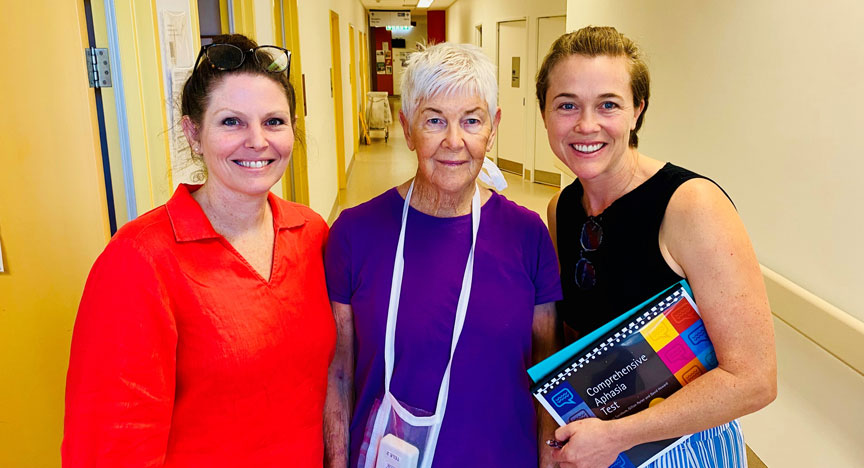
Jill O'Connor was back on her feet within days after a stroke due to the quick administration of a life-saving medication.
The fast actions of Cairns Hospital emergency department staff identifying the stroke and delivering clot-busting medication - known as thrombolysis - not only saved her life but led to a far quicker recovery.
The 80-year-old was at her son's home on 31 May when she was overcome by something she describes as 'mess'. She had suffered from an ischemic stroke or stroke due to a brain clot.
‘I cannot even tell you if it was pain or what it was but I was collapsing,’ she said.
‘I thought 'I'll go to sleep this is terrible'.’
Jill’s son, thankfully, called triple zero.
Time is the most critical factor from the onset of a stroke to treatment, even down to the minute can impact a patient's survival rate and quality of recovery.
From her life-saving care in the emergency department, Jill was transferred for specialist care at the Acute Stroke Unit, where a team of expert staff provide advanced care and early rehabilitation to minimise long-term disability.
Fast forward just five days and Jill is recovering. From a layperson's observation she seems like a fully functioning and spritely 80-year-old.
But the stroke impacted Jill's language, and Cairns Hospital speech pathologist Tess Blake is part of a team helping to rehabilitate Jill.
Aphasia affects about one in three people following a stroke and results in difficulty expressing or understanding spoken and written language.
It can get 'swept under the rug’ because it is not physically visible, according to Tess.
‘When someone like Jill comes in it's really important to assess communication within the first 48 hours.
‘The best outcomes for language recovery are gained by early intervention.
‘We would be looking at a period of intensive inpatient or community rehab for Jill. She's doing pretty well and we want to optimise that recovery. The more we can get in now the better chance of recovering over the long term.’
The timing of Jill's stroke was a blessing in disguise. She was due to fly out to Spain the day after her stroke.
‘My goal now is to get better. I've got my pills and things but I need to see how I cope with whatever is happening. I'll learn some better speech than what I've got.
‘There are fantastic people here (at Cairns Hospital), they are lovely. The nurse hasn't been here for three days but she was with me all the night of the stroke and it's sort of like seeing a friend again.’
A stroke is always a medical emergency and it is important to seek urgent care by calling 000.
Telltale signs of stroke include facial drooping, difficulty lifting arms and slurred speech.
For more visit healthdirect's stroke signs and symptoms.